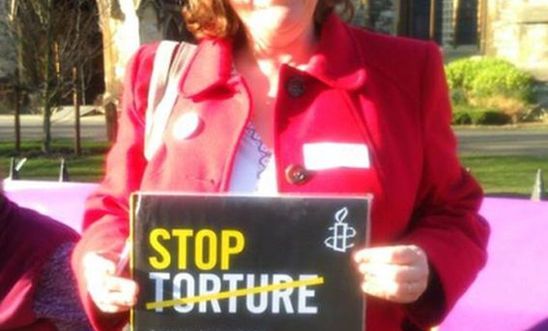The Bahá’í teachings offer profound insights into the struggles of humanity, particularly concerning issues of justice and the sanctity of human life. One of the most pressing global issues today is the persistent practice of torture—a violation of the inherent dignity that every individual possesses. Within the Bahá’í framework, a call to action against torture resonates deeply, beckoning believers and humanity at large to engage in meaningful advocacy. This discourse aims to explore the intersection between Bahá’í principles and the imperative to confront and eradicate torture.
At its core, the Bahá’í Faith recognizes the unity of humankind and the interdependence of all people. The mirror of this principle reflects the understanding that any act of torture not only inflicts suffering upon the tortured but also damages the moral fabric of society. The Bahá’í discourse situates the eradication of torture within the broader context of the quest for justice and equity, emphasizing that the plight of one affects the welfare of all. To allow torture to persist eradicates dignity and invites an atmosphere of fear, which ultimately undermines the foundation for orderly and peaceful coexistence.
In this light, the Bahá’í teachings highlight the essential need for individuals to cultivate a profound sense of compassion. A call to action to stop torture must begin internally, fostering a mindset that is intolerant of cruelty. The Bahá’í writings exhort—the importance of recognizing the divine potential inherent in every individual. The challenge lies in awakening this recognition in a world that too often dehumanizes the “other.” Metaphorically speaking, if we view our societies as a garden in which each flower represents a human life, then allowing the thorns of torture to flourish only serves to choke the growth and vibrancy of the garden as a whole.
The belief in the oneness of humanity transcends cultural, racial, and national boundaries, imploring followers to engage in global conscientiousness regarding the practices of torture. This approach calls for more than passive opposition; it demands that one becomes an active participant in the transformation of societal values. The Bahá’í principle of service emphasizes that through writing to legislators, organizing community dialogues, and advocating for those subjected to torture, individuals can effectuate change. The collective push towards human rights observance can be compared to a chorus, harmonizing voices towards a unified goal—stopping torture.
Moreover, the Bahá’í teachings stress the importance of education as a vital tool in combatting the clandestine propagation of torture. Enlightened minds recognize that ignorance often serves as the breeding ground for oppression. By educating communities about the realities of torture, the techniques used, and the lasting psychological and physical scars they imprint, Bahá’ís can illuminate the dark corners where such practices fester. In essence, knowledge serves as a candle—a guiding light that dispels shadows of apathy and indifference.
A poignant element in this call to action involves the spirit of forgiveness and reconciliation enshrined in Bahá’í belief. While it may seem counterintuitive to promote forgiveness in the face of such heinous acts, embracing forgiveness enables individuals and societies to release the heavy chains of resentment and pain that torture induces. The act of forgiveness does not absolve the torturer but rather liberates the victim from the burdens of suffering. Engaging in restorative justice practices embodies the ideal of healing rather than vengeance—a true testament to the transformative nature of love advocated by Bahá’í teachings.
In this context, the Bahá’í community advocates for the establishment and support of organizations dedicated to combating torture. Collaboration with international bodies such as the United Nations and local human rights organizations amplifies the Bahá’í voice on this critical issue. Acknowledging that unity is strength, the Bahá’í community can contribute to a collective front that resists the perpetuation of torture through legislation, awareness campaigns, and emergency interventions, thereby enacting the moral responsibilities endowed by faith.
Furthermore, the Bahá’í understanding of the spiritual evolution of societies posits that the eradication of torture is not just a physical act but a spiritual imperative. Therefore, this movement against torture requires a fundamental shift in societal consciousness—essentially a transition from a culture that permits violence to one that embraces peace and compassion. By cultivating virtues such as kindness, justice, and empathy, individuals can become the architects of a new societal paradigm that views every individual as a cherished member of the human family, deserving of respect and humane treatment.
Ultimately, the mission to stop torture calls for a baptism of courage—a willingness to stand resolutely against a profound evil that plagues humanity. Engaging in advocacy, fostering education, and promoting forgiveness are not merely moral choices but essential pillars of action rooted deeply in Bahá’í teachings. Each act of compassion reverberates throughout the collective conscience, inspiring others to join the struggle against torture. In this shared voyage towards justice and love, we hold aloft the torch of hope that illuminates the path towards a future where torture becomes a distant memory, replaced by a tapestry of humanity woven together by mutual respect and understanding.
